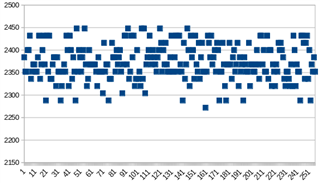I am currently evaluating nrf52840 - CDSENET E73-2G4M08S1C module with installed CircuitPython 7.0.0-alpha.3. Unfortunately the ADC readings are quite noisy. For example for 256 consecutive readings of a DC signal (0.120V) from a potentiometer the stdev = 39.

Any way to improve this ?


